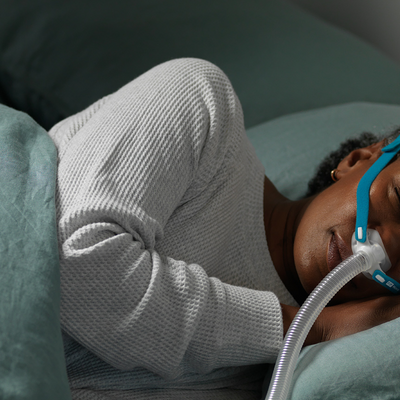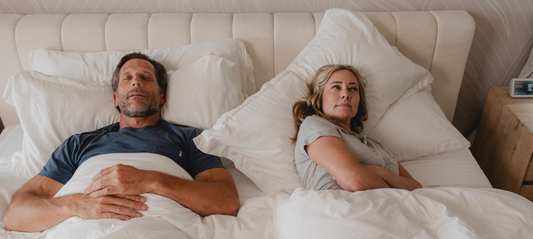If you’re a parent, you’re probably well aware that helping a baby get adequate rest each night is not quite as easy as simply putting them in a bed and turning off the light. Knowing the right time to put them to bed, timing their feedings, creating a consistent bedtime routine, and cultivating a sleep-friendly sleep environment are all factors that we use to help our babies get the right amount of quality sleep they need to grow and develop properly.
Quality rest is extremely important for babies. According to the American Academy of Sleep Medicine, regularly getting the recommended amount of sleep results in better health outcomes for infants including improved attention, memory, learning, emotional regulation, and better overall physical and emotional health.
While the amount of sleep you need as an adult compared to a baby might be less, the importance of getting the right amount of quality sleep is still paramount to your overall health, especially if you’re a parent to young children. Among a number of negative health consequences, lack of sleep puts you at risk for depression and can have a negative impact on the functioning of your marriage and family life.
If you aren’t getting enough rest at night, you might wonder if the same sleep tips you’ve incorporated to improve your baby’s sleep health help yours as well. While no one here is going to suggest you “cry it out” on the nights you can’t sleep, incorporating other important baby sleep training tips can help!
Establish a Bedtime Routine
One of the first things you learn as a new parent of an infant is how important routines are. A consistent series of activities performed around the same time each night helps to signal to your baby it’s time to wind down, allowing for better quality sleep. More than 90% of pediatricians recommend implementing a consistent bedtime routine for infants who are experiencing sleep problems.
Similarly, cultivating a consistent bedtime routine for yourself is one important part of sleep hygiene that helps prepare your brain and body to rest. Obviously you should customize your routine according to what best helps you to relax and unwind. Your bedtime routine might include dimming the lights, eliminating distractions by turning off your phone or TV at least an hour before bed, playing quiet music, brushing your teeth, reading, taking a bath, or stretching.
A consistent bedtime routine is a simple lifestyle change you can make to improve your sleep health. However, if you already have a good routine and you’re still suffering from a lack of sleep, an at-home sleep test can be a great first step in assessing what’s keeping you from the rest you need.
Create an Optimal Sleep Environment
Creating a peaceful environment is another tool parents use to help support their baby’s rest. Ways to make your bedroom more conducive for optimal sleep include the following:
- Limit your exposure to light
Your circadian rhythms are the cycles in your body that control different physical, mental, and behavioral changes in your body. These rhythms are controlled by a part of your brain that signals the release of melatonin, the hormone that helps you feel sleepy.
To help encourage these natural sleep supports within your body, you should limit your exposure to light in the evenings, especially blue light that comes from your phone or TV. Exposure to blue light before bed can disrupt your circadian rhythm and make it harder for you to fall asleep and stay asleep.
So try to limit how much you engage with electronics in the hour or so before bedtime. For a darker room, you can try blackout curtains or a sleep mask.
-
Eliminate distractions
Try to avoid having a TV in your room. You might even consider using an alarm clock so you can charge your phone outside of your bedroom, making it easier to resist the urge to scroll social media before bed.
It’s also important to only use your bed for sleeping or sex. Try to avoid working in bed or doing other activities that might overstimulate your brain and make it harder to relax.
The Mayo Clinic suggests that the best temperature for bedtime is between 60 and 70 degrees.
Obviously we have to do the best with what we have, but if you’re constantly readjusting or in pain because you’re dealing with a subpar mattress or pillow, you could be a simple fix away from a goodnight’s sleep.
White noise or running a fan at night can help drown out any outside noise that may disrupt your sleep.
Quality sleep is paramount to your baby’s growth and development, and it’s just as important to your overall health and quality of life. Prioritizing your sleep health is one of the most important acts of self-care you can engage in as a parent. If you feel like you’ve tried everything and you are still suffering from the effects of low-quality rest, consider seeking help from your physician or taking an at-home sleep assessment to find out if further treatment is needed.










































